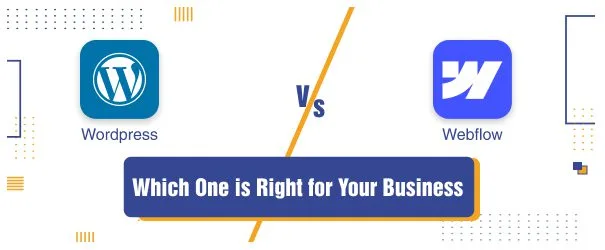Mobile apps have become synonymous with daily lives, personally and professionally. Businesses increasingly recognize the need for mobile applications to engage with customers, improve user experiences, and streamline internal processes. Regarding mobile app development, you have two primary choices: hire native or hybrid mobile app development services. Hybrid mobile app development offers a middle ground as it combines the advantages of web and native apps. However, determining whether you need hybrid mobile app development services can be complex. To help you make an informed choice, we've compiled 12 essential questions to ask.
- What Are Your Budget Constraints?
One of the most critical factors in choosing between native and hybrid app development is your budget. Native app development can be costlier because it requires separate development for each platform (iOS and Android). In contrast, hybrid apps allow you to write a single codebase across multiple platforms. Hybrid development may be the right choice for people with budget constraints or who need to develop an app quickly and cost-effectively.
- Do You Need Cross-Platform Compatibility?
Hybrid apps are an excellent option to reach a broad audience across various platforms, including iOS, Android, and the web.You can deploy hybrid apps on multiple platforms with a single codebase, saving time, effort, and development costs.This cross-platform compatibility can significantly expand your app' s user base.
- What Is Your Timeline?
The speed of development is another critical factor to consider. Hybrid development can be advantageous if you have a tight deadline or need to release your app quickly to capitalize on market opportunities. Developing and maintaining a single codebase typically takes less time than creating separate native versions for iOS and Android.
- Are There Performance Requirements?
Native apps often outperform hybrid apps in speed and responsiveness, especially for complex or graphics-intensive applications.For apps with stringent performance requirements, such as real-time gaming or resource-intensive calculations, native development may be more suitable.Native apps can fully leverage the device' s hardware, leading to superior performance.
- Do You Need Access to Device Features?
Consider the functionalities your app requires. Native apps directly access device features like the camera, GPS, accelerometer, and sensors. For apps that heavily rely on these features or need to integrate with hardware components, a native approach might be better suited to meet your needs. For instance, if you are building a camera application or a fitness tracker, native development would provide access to device-specific capabilities.
- How Important Is User Experience (UX)?
User experience is essential for the success of any mobile app.Native apps can provide a more seamless and platform-specific user experience because they adhere to each platform' s design guidelines and standards (iOS and Android). For delivering a top-notch user experience and apps that look and feel native on both platforms, native development may sometimes be a better option.
- Do You Plan to Maintain Two Codebases?
When evaluating your long-term development and maintenance strategy, consider whether you want to maintain separate codebases for each platform.Native development requires different codebases for iOS and Android, so you' ll need to allocate resources to maintain and update both versions. In contrast, hybrid apps allow you to maintain a single codebase, simplifying the maintenance process. If reducing ongoing development and maintenance costs is a priority, hybrid development offers significant advantages in terms of efficiency and cost-effectiveness.
- Are You Familiar with Web Technologies?
Hybrid mobile app development often involves web technologies such as HTML, CSS, and JavaScript. If you have expertise in web development or already have a web-based application, transitioning to hybrid development can be smoother and more cost-effective. Developers experienced in web technologies can leverage their skills to build and maintain hybrid apps, potentially reducing development costs and timelines.
- What Is Your Target Audience?
Consider your target audience' s devices and preferences. For apps that need to cater to a diverse range of devices and platforms, a hybrid app can provide a consistent user experience. This uniformity can be particularly beneficial to ensure a cohesive brand image and user experience across various devices and operating systems.
- How Frequently Will You Update Your App?
The frequency of app updates is a crucial consideration. With frequent updates and changes to respond to evolving user needs or market trends, hybrid development offers a more streamlined process. You can make changes to a single codebase and simultaneously deploy them to all platforms, ensuring your app remains up-to-date and competitive.
- Are You Building a Prototype or MVP?
If you' re in the early stages of your project and building a prototype or minimum viable product (MVP) to test your app' s concept and gather user feedback, hybrid development can be a quicker and cost-effective way to get your idea into the hands of users.Building an MVP with a hybrid approach allows you to validate your app' s viability and feasibility without the extensive time and resources required for native development.
- Do You Need Offline Functionality?
Consider whether your app must function reliably without an internet connection.Native apps can offer better offline functionality by storing data locally on the device.If your app requires offline access to critical features or content, native development may be preferable.However, it' s essential to note that hybrid apps can also provide offline capabilities through technologies like service workers and local storage, though they may require additional development effort.
The decision to choose between native and hybrid mobile app development depends on your specific project requirements, budget, timeline, and long-term goals. The answers to these 12 questions and a careful evaluation of your needs will help you make an informed choice that aligns with your app development objectives. Additionally, consulting with experienced app developers or development firms can provide valuable insights and guidance in making the right decision for your unique project. Ultimately, the choice should be based on what best serves the needs of your users and your business, ensuring that your mobile app becomes a valuable asset in achieving your goals.





